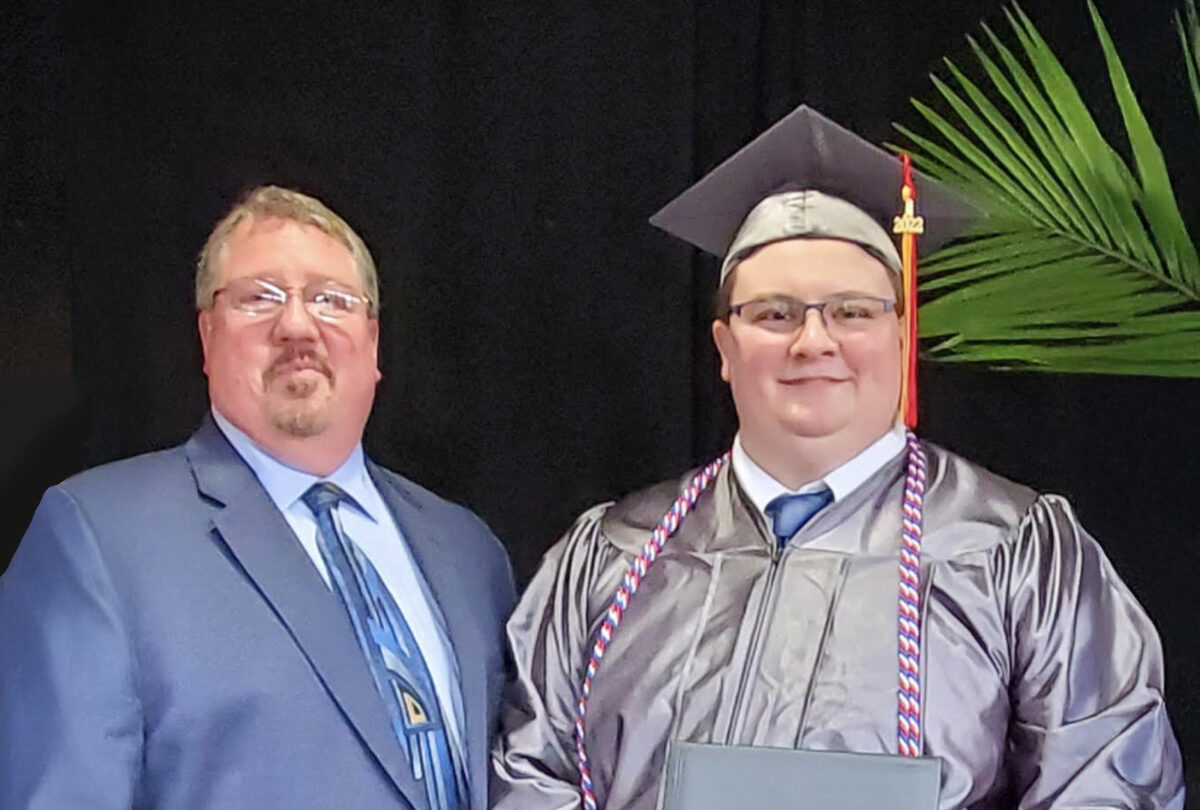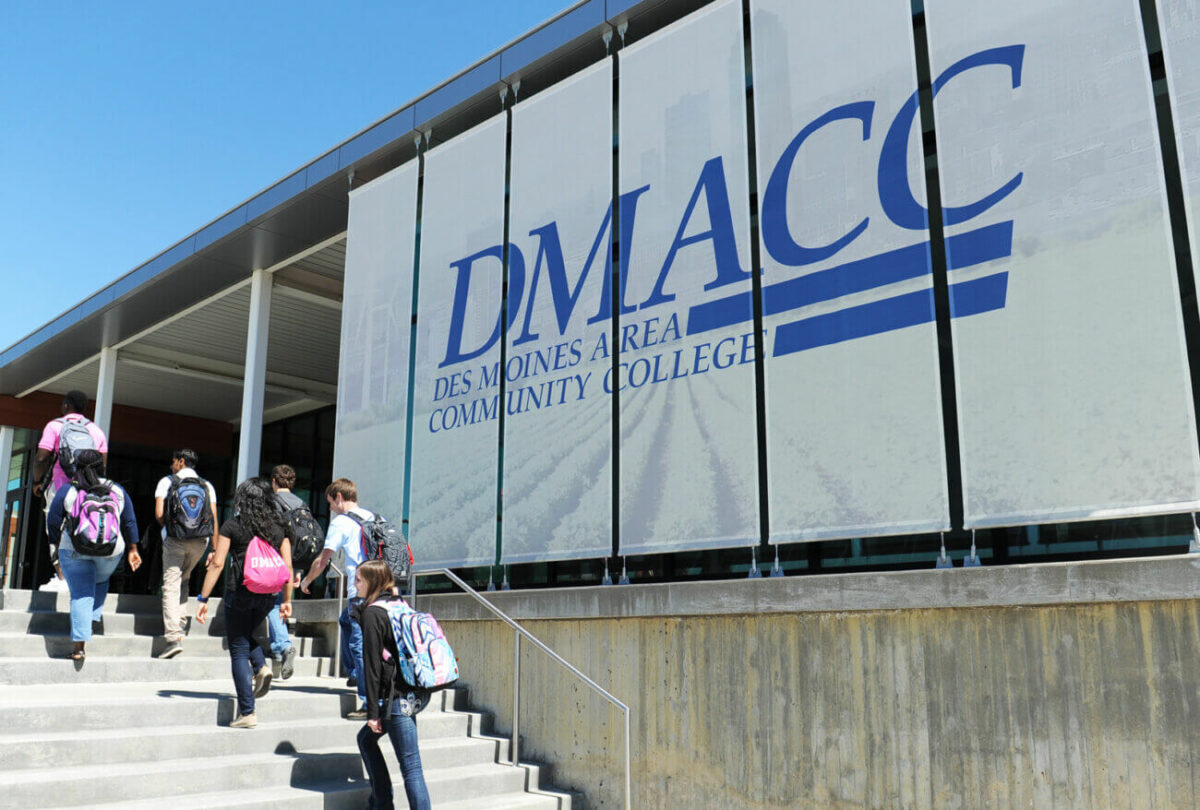By Alba Muñoz Saiz and Ethan Watters
For the McGehee family, Hormel Inspired Pathways provided the means to turn setbacks into new opportunities.
When Brian McGehee joined Hormel Foods in 2020, he brought a lifetime of experience with him: over 29 years in the Army, two decades managing marketing projects in Chicago, and a return to his manufacturing roots. Today, he serves as a senior team leader at the Rochelle, Illinois, production facility where, trained across five departments, he oversees a crew in operations. The work is continuous and team-dependent. “Once the process starts on a Monday, it doesn’t stop until the end of the week,” Brian says, and he often jumps in wherever he’s needed.
Of all the hats he wears, though, the one that matters most to Brian is being a father. In the wake of COVID disruptions, his ongoing service injury recovery and his wife’s difficult cancer treatments, the question of how their two kids would make it to and through college felt overwhelming. But then he learned about the Hormel Foods Inspired Pathways program.
Joseph Finds His Direction
For Joseph, Brian’s oldest, that path forward came after several false starts. He left high school planning to study computer science at a four-year university, but after two semesters, he knew it wasn’t right. He transferred to community college and switched majors — then the pandemic shut everything down. At the same time, the family was relocating for Brian’s new role at Hormel Foods, and Joseph took on the heavy lifting: helping with the move, cleaning out his grandmother’s apartment after her passing, painting and repairing the family’s new home. College fell to the wayside.
I didn’t know if I wanted to go back, it was expensive, and I wasn’t sure what I wanted to do.”
Joseph McGehee
Hormel Inspired Pathways Recipient
That’s when Brian told him about Inspired Pathways, a program that covers tuition at community colleges for children of Hormel Foods team members.
The turning point came when Joseph signed up for a criminal justice class, almost on a whim. “Halfway through the semester, I was like, I’m applying to a university, what am I doing?” he says. But he loved the class. When his professor praised his thoughtful writing and encouraged him to consider a career in law enforcement, Joseph was hooked.
With tuition covered and the flexibility to take summer courses, Joseph accelerated his progress at Waubonsee Community College. When he needed summer class coverage, something not always included, program director Nate Lockett worked directly with him to make it happen.
“Nate was super helpful,” Joseph says. “He got it all arranged so I could shorten my time there. Without that, I don’t think I would’ve finished as quickly, or maybe at all.”

Joseph transferred to Western Illinois University, where he completed his bachelor’s degree in Law Enforcement and Justice Administration in just three semesters, plus a summer internship. Today, he’s working in security while applying to police departments in Wisconsin, where he hopes to serve a mid-sized community. “During my internship, I experienced how all the separate divisions of the department worked together to achieve positive outcomes across a variety of calls and encounters,” he reflects. “It was so helpful because each team specialized and knew exactly what to do in those situations.”
Brian’s Daughter Resets Her Dream
Brian’s daughter had a clearer plan — at first. Her dream was to become a veterinarian. She enrolled at one of the State Universities but just as she settled in, many of her classes were shifted from in-classroom to online. For a learner who thrives in labs, the disappointment was crushing. “She had already excelled in her science classes in high school,” Brian says. “But how do you continue to learn chemistry from your dorm room?”
That’s when Inspired Pathways became her reset button. Through the program, she enrolled at Waubonsee Community College to complete her general education credits, then transferred into the veterinary technology program at Joliet Junior College. The Pathways program’s flexibility proved crucial. “She was able to do the three-year program, one year at Waubonsee and two at Joliet,” Brian explains. “We were very concerned about how that would work, but Inspired Pathways was versatile enough to accommodate it.”
Today, she works as a veterinary technician and is thriving in a career she loves.
A Family’s Relief
The program’s impact went beyond tuition dollars. For a family balancing Brian’s ongoing medical recovery and his wife’s battle with cancer, including eight rounds of chemotherapy and major surgery, financial relief made education possible. “One chemo treatment cost approximately $80,000, and insurance doesn’t cover it all,” Brian notes. “Having Inspired Pathways cover college gave us room to breathe.”
Joseph echoes that sentiment. While friends at other jobs found themselves locked into contracts after accepting tuition support, Inspired Pathways required no such commitment. “No one else does that,” he says. “They always want something in return. This was just support.” That generosity freed him to focus on academics instead of worrying about how to balance work, classes and bills.
For Brian, the program reflects something deeper about the Hormel Foods culture. Having served in multiple industries and organizations, he sees Inspired Pathways as a benefit that reinforces loyalty while investing in future generations, not necessarily as future employees, but as contributors to their communities. “It’s good potential reinvestment,” he says.
His own perspective on education underscores the point. Years ago, Brian struggled with statistics at a large university before retaking it in a summer semester at a community college, where smaller classes and engaged teachers made all the difference. “I went from failing to getting a 95,” he says. “The teachers cared, and they were there to teach.”
It’s that same accessible, practical model that Inspired Pathways supports today — and families like the McGehees are proof of its power.










